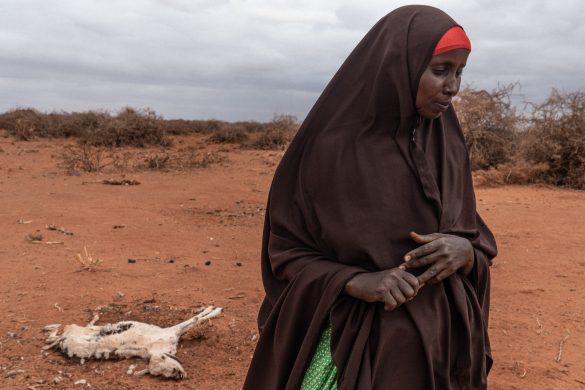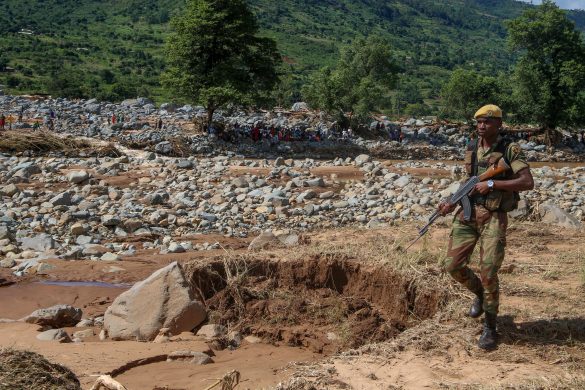JOHANNESBURG, 29 March 2010 (IRIN) – Extensive flooding along the rivers of central and southern Mozambique during March, in tandem with persistent drought in other parts of the same areas, have left 465,000 people in need of food assistance, but aid agencies warn that they do not have the resources to help.
“We have a very big problem now,” said Lola Castro, Country Director of the UN World Food Programme (WFP), who told IRIN that her organization could assist only around 175,000 and that by “the end of April the [WFP] pipeline will have dried up”.
In contrast, the latest food security outlook for Mozambique, released by the Famine Early Warning Systems Network on 26 March, noted that “456,000 people will need food assistance from April 2010 to March 2011”.
In February the Ministry of Agriculture estimated that in the centre and south of the country 605,000 hectares of planted land were lost to drought – equivalent to 30 percent of the total land planted in the affected areas – representing a national loss of 13 percent of maize and 11 percent of cereal production.
Castro said around 100,000 Mozambicans had suffered a “double shock”: they had moved away from drought-affected areas into the lower lying floodplains of the Zambezi, Búzi, Púngoe, Licungo and Save river basins, but then floods swept the country in early March. “That means they lost their seeds twice,” she said.
Worse every year
“The population is really suffering from changing weather patterns – communities say that in the last 10 years the rains have not been the same,” Castro said. In some areas there has been drought has for three years now.
“It is clear that this is urgent,” Chris McIvor, Advocacy and Programmes Director of the Save the Children Alliance in Mozambique, told IRIN. “This is not something that happened only this year – the people we met [in Gaza Province] complained of several consecutive bad years.”
Communities are usually completely dependent on their harvests for food and income. McIvor said families were already resorting to negative coping strategies like selling off assets and keeping children out of school as a source of labour. Any little cash they had was being spent on food, and there was nothing left for school or healthcare.
The first harvest season – the main crop – has been lost; McIvor warned that the second planting season, in May, would help, but would certainly “not solve the problem”.
In the short term food aid would be crucial and the government had already requested WFP for immediate food assistance for 100,000 people in the four most affected districts: Mutarara, Mopeia, Morrumbala, and Chinde.
WFP’s Castro said her organisation had appealed to donors for international assistance, and while “some have replied positively … we are really hoping for more”. Austria, the United States and Japan have provided assistance, as has the UN Central Emergency Response Fund.
Feeding is not enough
Castro said WFP would “try to buy locally” in their immediate response, which would have the added benefit of sourcing food from productive areas in the north of Mozambique, “where they have had quite good harvest”, and stimulating local production and markets.
Food would be distributed via food-for-work projects, because providing food in exchange for work would create investment in essential rural infrastructure like irrigation and sanitation, while ensuring food security.
In the long term it was essential that the government – with the assistance of WFP and partners such as the UN Food and Agriculture Organization – focused on introducing alternative seeds and plants “more resistant to drought, like sorghum, millet and cassava”. “It is clear that these communities need to change,” Castro commented.
McIvor noted that depending on rain-fed agriculture would not be feasible, particularly in the south, and interventions would have to include irrigation and water management schemes, drought-resistant crop varieties, and diversifying into alternative livelihoods, like fishing. Given the chronic nature of the problem, long-term solutions would have to be found “if we want to move away from a dependency on aid”.














